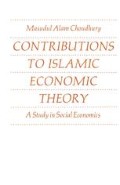Abstract
Schumpeter tried to enunciate in his monumental work, that economic science, if it is to be a science, must be bereft of all shades of value judgements. He defined ‘scientific economics’ to mean, ‘the sum total of the historical, statistical and theoretical techniques, together with the results they produce’.1 The impingement of all shades of value judgements was to be considered outside the pale of economic theory, because, as Schumpeter claimed, such judgements leave economic analysis unaffected. Notwithstanding this claim the enunciation could not be sustained in the body of Schumpeter’s work.
This chapter was presented as a paper by the author at the Third World Congress of Social Economics, California State University at Fresno, 16–19 August 1983. An abridged version of this chapter is to appear in the International Review of Economics and Ethics.
Access this chapter
Tax calculation will be finalised at checkout
Purchases are for personal use only
Preview
Unable to display preview. Download preview PDF.
Notes and References
J. Schumpeter, History of Economic Analysis (New York: Oxford University Press, 1968).
O. Lange, Introduction to Econometrics (Oxford: Pergamon Press, 1966) chap. iii.
Zarqa, M. A. ‘An Islamic Perspective on the Economics of Discounting in Project Evaluation’, in Fiscal Policy and Resource Allocation in Islam, eds Z. Ahmed, et al. (International Centre for Research in Islamic Economics, Jeddah, and Institute of Policy Studies, Islamabad, Pakistan, 1983).
Siddiqui, N. ‘Economics of Profit Sharing’, in Fiscal Policy and Resource Allocation in Islam, eds Z. Ahmed et al. (International Centre for Research in Islamic Economics, Jeddah, and Institute of Policy Studies, Islamabad, Pakistan, 1983).
Y. P. Venieris, and F. D. Sebold, Macro-Economics Models and Policy New York: Wiley & Sons, 1977) pg. 167–9.
M. A. Choudhury, An Islamic Social Welfare Function (Indianapolis, Ind: American Trust Publications, Jan 1983).
Author information
Authors and Affiliations
Copyright information
© 1986 Masudul Alam Choudhury
About this chapter
Cite this chapter
Choudhury, M.A. (1986). Macroeconomic Relations in the Islamic Economic Order. In: Contributions to Islamic Economic Theory. Palgrave Macmillan, London. https://doi.org/10.1007/978-1-349-07728-1_12
Download citation
DOI: https://doi.org/10.1007/978-1-349-07728-1_12
Publisher Name: Palgrave Macmillan, London
Print ISBN: 978-1-349-07730-4
Online ISBN: 978-1-349-07728-1
eBook Packages: Palgrave Economics & Finance CollectionEconomics and Finance (R0)

